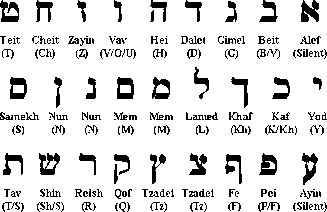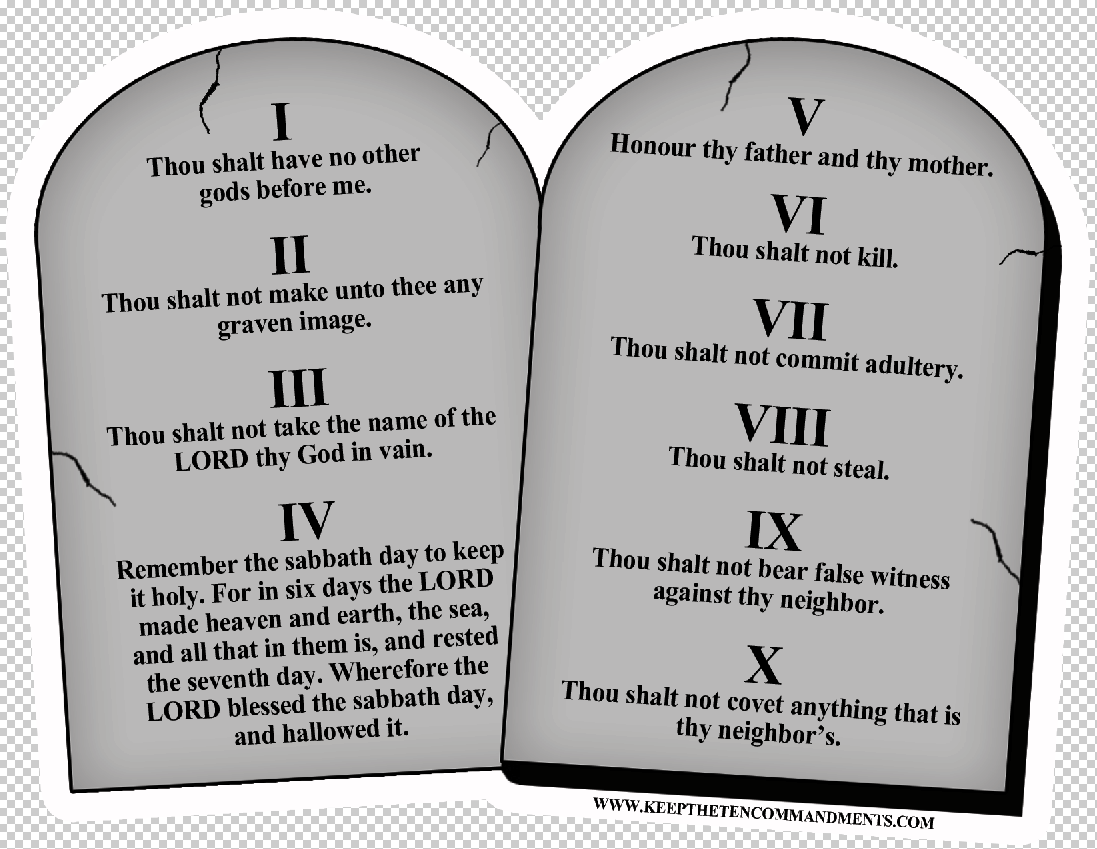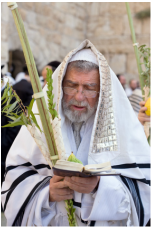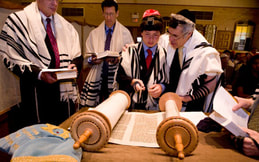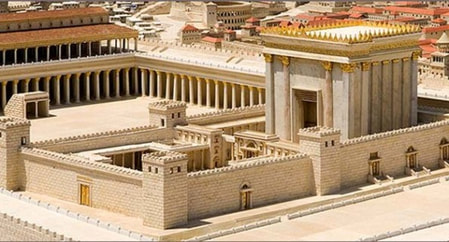Judaism
|
Monotheism
Judaism began in Southwest Asia and is practiced all over the world. Let's look at four central teachings of Judaism that remain very important today. Most people in ancient times believed in many gods. This belief is called Polytheism. The Israelites, later called Jews, were different. They believed that there is only one God, a belief called monotheism. Judaism is the world's oldest monotheistic religion. Abraham was a key leader of the early Jews. According to the Torah, Abraham introduced the belief in a single God to the Israelites, the ancestors of the Jews. The Torah tells how God first spoke to Abraham, telling him to move his family from Mesopotamia to Canaan. God also promised to make Abraham the father of a great nation and to bless this nation. Abraham's descendants became known as the Jewish people. |
|
Morality
Judaism teaches that God is the source of morality (standards of right and wrong). These ideas of right and wrong had not always been known in ancient civilizations. Jews learn about and follow their religion by studying their sacred texts. Through study and prayer, many Jews feel that God is close to them in their daily lives. Following the teachings in the Hebrew Bible and the Talmud. (TAHL-muhd) is central to Jewish life. The Talmud is the collection of ancient Jewish writings that interpret the laws and teachings of the Hebrew Bible. The Torah instructs Jews about how to lead moral lives. For example, Jews are taught to "love your neighbor as yourself." Ten Commandments Among Judaism's oldest laws and teachings are the Ten Commandments. The commandments tell how to lead upright and honorable lives. For example, one commandment tells Jews to set aside a holy day, the Sabbath, every week. The commandments also lay down standards of right and wrong, such as "You shall not steal" and "You shall not murder." Over time, Jewish religious leaders developed a larger set of laws and teachings. For example, there are rules about what foods to eat and how to follow religious practices, such as the festival of Passover. This holiday celebrates the Exodus—the freeing of the enslaved Israelites from Egypt. Jews observe these rules and practices in different ways. |
Equality and Social Justice
Beginning with the Ten Commandments, Judaism has always been concerned with a code of ethics, or moral values of right and wrong. Two important values that have influenced many societies are equality and social justice. Unlike some other ancient civilizations, the Israelites did not see their leaders as gods.
Beginning with the Ten Commandments, Judaism has always been concerned with a code of ethics, or moral values of right and wrong. Two important values that have influenced many societies are equality and social justice. Unlike some other ancient civilizations, the Israelites did not see their leaders as gods.
|
They believed that there is only one God, and even kings had to obey God's laws and teachings. Judaism teaches that God considers all people equal. Belief in equality goes hand in hand with a concern for social justice. Many stories and sayings in the Hebrew Bible teach about treating everyone fairly. For example, one passage says, "You shall open wide your hand to your brother, to the needy and to the poor." Caring for the less fortunate people in society is a basic value in Judaism.
The Importance of Study Studying the Hebrew Bible, and especially the Torah, is very important in Judaism. Jews also study interpretations of the Hebrew Bible made by scholars and religious leaders called rabbis. In ancient times, those rabbis and scholars who were interpreting the basic teach-ings of the Torah made decisions that were passed down orally. In the 200s C.E., Jewish scholars began to write the Talmud, which contains this oral tradition along with academic analyses. The Talmud became a basic source of Jewish law. Later on, rabbis wrote their own studies of both the Hebrew Bible and the Talmud, continuing the tradition of interpreting the teachings of Judaism. Throughout history, Jews have kept their reverence for study and learning. Many Jews learn about Jewish history, law, and traditions through reading and discussion. They also pass on their knowledge to other members of the faith. |
Traditional Jewish PracticesKosher:
Many Jews follow traditional Jewish practices based on the commandments of Jewish law. These practices can deal with such daily activities as eating and working. For example, traditional Jews eat only foods permitted by the Bible. These are called kosher foods. Jews who eat kosher foods do not eat pork or shellfish or mix milk and meat products. During major holy days, work is for-bidden and traditional Jews avoid activities such as writing and driving. Not all Jews today follow all of these practices. They believe that these practices can be modified as long as Judaism's ethical teachings are followed. (Watch Kosher Video) Bar/Bat Mitzvah When Jewish children are 12 or 13, most have learned to read Hebrew and lead a religious service in the synagogue. They become Bar Mitzvah (boys at age 13) and Bat Mitzvah (girls at age 12) which means they have the religious responsibilities of an adult. The largest synagogue in Israel is the Belz Great Synagogue. Located in Jerusalem and completed in the year 2000, it seats more than 5,000 people. Jewish Places of WorshiPJewish places of worship are called synagogues. Synagogues have Torah scrolls, written in the Hebrew language. The scrolls have beautiful, decorated covers. When they are not being used, the scrolls are kept in a special cabinet called an ark. During certain religious services, members of the congregation read aloud from the Torah.
Watch Video below Jewish Holidays |
|
The Jewish calendar is marked by a number of holidays that Jews celebrate as holy days of worship and celebration. All Jewish holidays begin at sunset before the date specified on most calendars. This is because a Jewish day begins at sunset and ends the next evening. The dates of Jewish holidays are different each year. A year in the Jewish calendar has fewer days than the 365 days in the non-religious calendar. Periodically, the Jewish calendar adds an extra month, like the non-religious calendar adds an extra day in leap year. Thus, Jewish holidays always fall in the same season.The idea of a weekly day of rest is one of Judaism's important contributions to the world. In Judaism, the weekly day of rest is called Shabbat, which is the Hebrew word for Sabbath. Many see it as the most important holy day. It starts at sunset on Friday and ends at sunset on Saturday. During Shabbat, Jews are supposed to put aside work and everyday concerns. Most other Jewish holy days celebrate important events in the Hebrew Bible and Jewish history.

